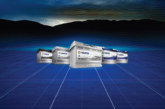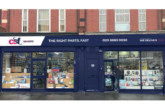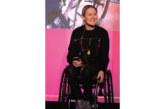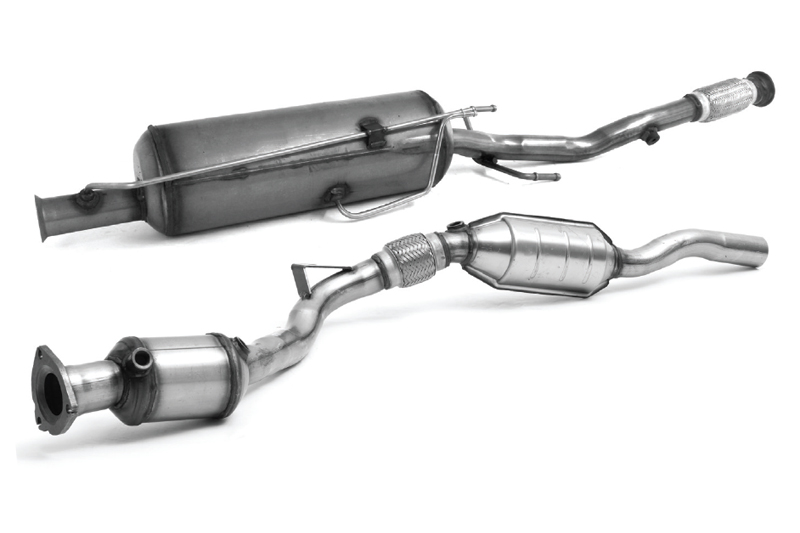
BM Catalysts, highlighting its own fight over emissions compliance, has called for greater enforcement following the Driver and Vehicle Standards Agency’s (DVSA) report into UNECE 90 Regulations.
The DVSA’s market surveillance unit found that three out of eight braking brands tested failed to comply with UNECE 90 Regulations and Toby Massey, managing director of BM Catalysts, has seen parallels with the company’s fight to uphold standards:
“We welcome the DVSA’s continued market surveillance activity. It’s a complex process, but it’s essential that we maintain standards and ensure attention to detail over the rules in place.”
The UK manufacturer and exporter of catalytic converters, diesel particulate filters (DPFs) and front pipes, has been campaigning for compliance within the industry for a number of years. It has also been trying to educate on the complexities of type approval legislation against the “volatile prices” of platinum group metals used in the production of catalytic converters, which “could see quality standards within the market taking a backseat in a bid to offset costs”.
Catalytic converters and DPFs that require homologation go through a type approval process before being legal for sale.

Toby added: “While the process of type approval is complex, the message from DVSA is consistent in that everyone in the supply chain needs to make every effort to adhere to the regulation on the supply and fit of compliant products.
“This issue won’t go away, and we’ll continue to work with distributors and workshops to ensure the automotive aftermarket supply chain is better informed over type approval legislation and the important role they can play in its enforcement, for the benefit of the entire sector.”
Meanwhile, BM Catalysts has expanded its offering by adding selective catalyst reduction (SCR) references to its range.
To coincide with the launch, the manufacturer has also produced some useful point of sale content, including a technical poster, which goes in depth about SCR technology and its effectiveness in reducing vehicle emissions.
SCRs work with diesel exhaust fluids (DEF), such as AdBlue, and can reduce a vehicle’s nitrogen oxide (NOx) emissions by up to 90%, according to BM Catalysts, while also reducing hydrocarbons, carbon monoxide and particulate matter emissions.
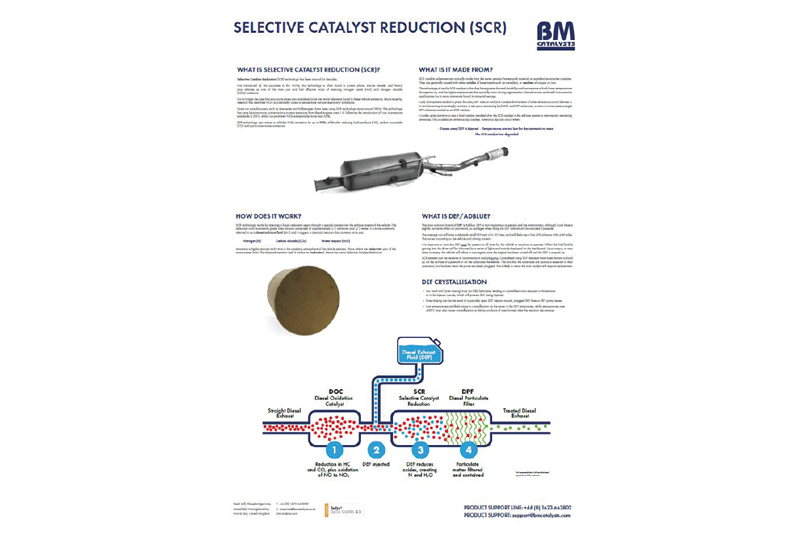
The technology has become commonplace to treat emissions from diesel engines over 1.6l, following the introduction of Euro VI emissions standards in 2015, which cut permitted NOx emissions by more than 50%.
Mark Blinston, commercial director at BM Catalysts, said: “The demand for SCR systems within the automotive industry is set to rise, as many Euro VI emissions vehicles feature this technology and will now be entering the aftermarket; therefore, it’s important that the industry has access to this product group in order to continue to service the vehicle parc.
“As a company, we are always looking ahead and will continue to invest in our extensive product development programme to further support the aftermarket.”

